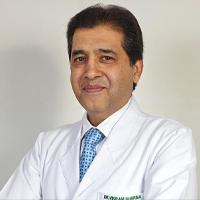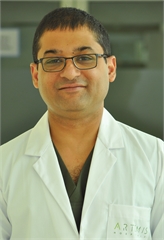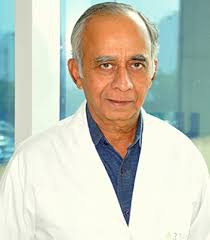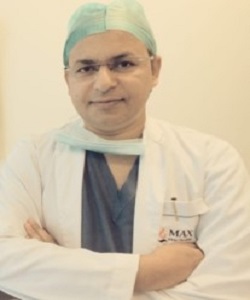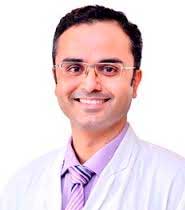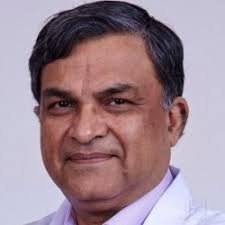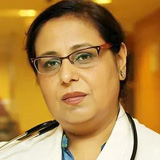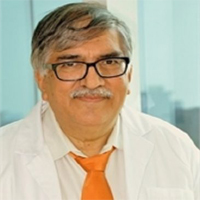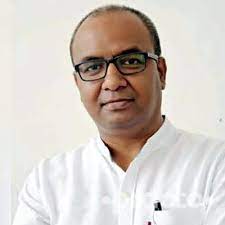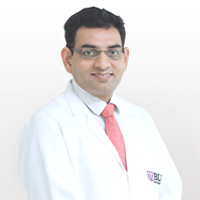Prostate Cancer Treatment IN INDIA
Prostate cancer is a type of cancer that arises in the prostate gland. The prostate is a tiny gland in boys and men, about the size of a small nut. The prostate is situated below the bladder, which is the hollow organ responsible for storing urine, and it is positioned in front of the rectum, which is the final part of the intestines.
Let’s explore prostate cancer in detail, including the associated treatment options and their costs.
The prostate gland plays a vital role in the male reproductive system by producing seminal fluid, which nourishes and helps transport sperm during ejaculation.
Positioned around the urethra—a tube responsible for expelling both urine and semen—the prostate’s location is crucial. Any issues affecting the prostate can lead to disruptions in both urinary and sexual functions in men.
Prostate Cancer Overview
Prostate cancer develops when certain prostate cells grow uncontrollably, forming a mass or tumor. Some cases progress slowly and pose minimal risk, while others are aggressive, potentially spreading to other parts of the body and causing significant health concerns.
Key Statistics
- Prevalence: Prostate cancer ranks among the top ten cancers affecting men in India, accounting for 5-7% of all male cancer cases (National Cancer Registry).
- Incidence Rate: Approximately 9-10 cases per 100,000 men. The incidence is expected to increase with improved diagnostics and longer life expectancy.
- Age Factor: Primarily affects men over 50, with most diagnoses in those over 65.
- Geographical Variation: Urban areas report higher rates than rural areas, likely due to lifestyle factors and easier access to healthcare. Major cities like Delhi, Mumbai, Kolkata, and Chennai have higher case counts.
- Mortality Rate: Although the mortality rate is lower compared to other cancers, prostate cancer is a leading cause of cancer-related death among older men due to late diagnosis and limited access to advanced treatment.
- Survival Rate: Early detection offers a 5-year survival rate of over 90%, while advanced cases see rates around 30-40%, heavily depending on the stage at diagnosis.
Risk Factors
- Age: The strongest risk factor, with risk increasing with age.
- Family History: Men with a family history of prostate cancer have higher risk.
- Lifestyle: Sedentary habits, high-fat diets, and obesity contribute to risk.
- Genetic Factors: Certain mutations, such as BRCA1 and BRCA2, increase the likelihood of aggressive prostate cancer.
Types of Prostate Cancer
- Adenocarcinoma (Most Common): Arises in prostate gland cells that produce sperm-nourishing fluid. Generally slow-growing and treatable with regular monitoring.
Rare Types: These include small cell carcinoma, transitional cell carcinoma, neuroendocrine tumors, and sarcomas, often requiring different treatment approaches.
What are the costs of Prostate Cancer Treatment in India?
Costs vary based on treatment type, hospital, and city. Below is an overview of typical costs across metropolitan areas, though actual expenses may vary based on the facility, specialist expertise, and patient needs.
| Treatment Option | Description | Estimated Cost (INR) | Common Locations |
| Close Supervision/Active Surveillance | Regular check-ups and PSA tests | ₹15,000 – ₹30,000 per year | Available in most cities |
| Surgery (Radical Prostatectomy) | Open Surgery | ₹2,00,000 – ₹3,00,000 | Delhi, Mumbai, Chennai, Bangalore, Hyderabad |
| Laparoscopic Surgery | ₹2,50,000 – ₹4,00,000 | Delhi, Mumbai, Chennai, Bangalore, Hyderabad | |
| Robotic-Assisted Surgery | ₹5,00,000 – ₹8,00,000 | Delhi, Mumbai, Chennai, Bangalore, Hyderabad | |
| Radiation Therapy | External Beam Radiation (EBRT) | ₹1,50,000 – ₹3,00,000 | Delhi, Mumbai, Bangalore, Chennai, Pune |
| Brachytherapy | ₹2,50,000 – ₹5,00,000 | Delhi, Mumbai, Bangalore, Chennai, Pune | |
| Hormone Therapy | Monthly medication or injections | ₹20,000 – ₹50,000 per month | Widely available across metropolitan cities |
| Chemotherapy | Per cycle (depending on drug type) | ₹60,000 – ₹1,50,000 per cycle | Available in all metropolitan cities |
| Immunotherapy | Treatment duration and drugs vary | ₹5,00,000 – ₹15,00,000 | Advanced oncology centers in Delhi, Mumbai, Bangalore |
| Targeted Therapy | Based on drug used and number of cycles | ₹2,00,000 – ₹5,00,000 | Major centers in Mumbai, Chennai, Delhi, Bangalore |
Prostate Cancer Treatment Costs by City
| City | Estimated Treatment Cost (Range) |
| Delhi | ₹2,00,000 – ₹10,00,000 |
| Mumbai | ₹2,50,000 – ₹12,00,000 |
| Bangalore | ₹2,00,000 – ₹10,00,000 |
| Chennai | ₹2,00,000 – ₹9,00,000 |
| Hyderabad | ₹1,80,000 – ₹8,50,000 |
| Pune | ₹1,80,000 – ₹8,00,000 |
| Kolkata | ₹1,70,000 – ₹7,00,000 |
How long is the stay period in India and at the hospital for Prostate Cancer Surgery?
For prostate cancer surgery, patients typically stay in the hospital for about 3-5 days post-surgery, depending on their recovery progress and the type of procedure performed (such as open surgery, laparoscopic, or robotic-assisted surgery). After discharge, patients are usually advised to stay in India for another 1-2 weeks for follow-up appointments and to monitor for any early post-operative complications, such as infection or urinary issues.
What are the Signs and Symptoms of Prostate Cancer?
Prostate cancer often has no symptoms in early stages. As it progresses, men may experience:
- Changes in Urination: Frequent urination, particularly at night, difficulty starting or stopping urination, weak flow, or pain during urination.
Other Symptoms: Unexplained weight loss, fatigue, constipation or diarrhea, blood in urine or semen, painful ejaculation, and erectile dysfunction.
What will be the Pre-Procedure for Prostate cancer treatment?
Regular screenings are critical as prostate cancer may be asymptomatic early on.
- Screening:
- Digital Rectal Exam (DRE): A doctor checks the prostate for irregularities or lumps.
- PSA Test: Measures prostate-specific antigen levels, with higher levels indicating potential cancer.
- Confirmatory Tests:
- Transrectal Ultrasound (TRUS): Produces prostate images for analysis.
- Prostate Biopsy: Tissue samples confirm the presence of cancer.
- Imaging Tests: Determine the cancer stage and spread.
Gleason Score: Rates cancer aggression on a scale of 6-10, guiding treatment options.
What are the available Prostate Cancer Treatment Options in India?
Treatment plans are tailored based on patient health, cancer spread, and progression. Early-detected prostate cancer is often treatable and even curable.
- Active Surveillance: Doctors monitor cancer through regular check-ups, PSA tests, and physical exams.
- Surgery (Radical Prostatectomy): Involves removing the prostate gland and nearby tissues.
- Types:
- Open Surgery: Involves a larger incision.
- Laparoscopic Surgery: Minimally invasive with smaller incisions and camera guidance.
- Robotic-Assisted Surgery: Precision-driven, aiming to preserve urinary and sexual function.
- Types:
- Radiation Therapy: Uses high-energy rays to kill cancer cells.
- External Beam Radiation Therapy (EBRT): Non-invasive, delivered over multiple sessions.
- Brachytherapy: Places radioactive seeds near the prostate.
- Hormone Therapy: Reduces androgen production to slow cancer growth.
- Chemotherapy: Targets advanced cancer cells with potent drugs.
- Immunotherapy: Stimulates the immune system to fight cancer.
Targeted Therapy: Attacks specific cancer genes or proteins for improved outcomes.
What will recovery be like after prostate cancer treatment?
Recovery after prostate cancer therapy is a complicated process that includes physical healing, emotional endurance, and lifestyle changes.
Patients should seek support from healthcare providers, and loved ones, and must have a positive mindset. If you do the following, you can lower your risk of prostate cancer:
- Eat a healthy diet, high in fruits and vegetables.
- Choose natural foods over supplements.
- Exercise regularly throughout the week.
- Keep your weight in check.
Prostate cancer poses significant health risks for men as they age. Recognizing prostate cancer signs and symptoms is equally important.
Early-stage prostate cancer rarely causes symptoms. As the condition advances, the following problems may arise:
- Changes in Urination:
- Urination regularly, especially at night
- Having trouble starting or stopping urination
- Insufficient or weak urine flow
- pain or discomfort during urination
- Unexplained Weight Loss
- Fatigue and weakness
- Bowel Changes(constipation or diarrhea)
- Blood in urine
- Blood in semen
- Painful ejaculation
Erectile Dysfunction: Inability to obtain or sustain an erection for sexual activity; a prevalent problem affecting men’s sexual health and performance.
Top Prostate Cancer Treatment Doctors in India
The right doctor to consult for a Prostate Cancer Treatment case.
Dr. Vikram Sharma
Year of experience: 29 years of experience
Dr. Vikram Barua Kaushik
Year of experience: 16 years of experience
Dr. Mandeep Dhanda
Year of experience: 10 years of experience
Dr. Akshay Tiwari
Year of experience: 18 Years of Experience
Head of the Department at Max Super Speciality Hospital, Saket, Delhi
Dr. Ajay Kumar Kriplani
Year of experience: 33 Years of Experience
Dr. Amit Agarwal
Year of experience: 20 years of experience
Dr. Kanchan Kaur
Year of experience: 17 years of experience
Dr. Meenu Walia
Year of experience: 27 years of experience
Dr. Rakesh Chopra
Year of experience: 15 years of experience
Dr. Rashmi Pyasi
Year of experience: 20 years of experience
Dr. Rayaz Ahmed
Year of experience: 17+ Years of Experience
Dr. Sabyasachi bal
Year of experience: 30
Senior Consultant at Sir Ganga Ram Hospital, Delhi
Dr. Satya Prakash Yadav
Year of experience: 23
Senior Consultant at Medanta The Medicity
Dr. Surender Kumar Dabas
Year of experience: 12 years of experience
Dr. Vinod Raina
Year of experience: 50
Senior Consultant at Fortis Memorial Research Institute, Gurgaon
Looking For The Best Doctor & Hospital?
Fill up the form and get assured assitance within 24 hrs!
What is the success rate of Prostate Cancer Surgery?
The success rate of prostate cancer surgery, often measured by cancer-free survival rates, is generally high, especially if the cancer is detected and treated in its early stages. For localized prostate cancer, surgery success rates can exceed 90%, with many patients achieving long-term remission or cure. The success rate varies depending on factors such as the stage of the cancer at the time of surgery, the patient’s overall health, and the expertise of the surgical team.
FAQs
FAQ:
- What is prostate cancer, and how does it develop?
Prostate cancer is a type of cancer that forms in the prostate gland, a small gland in men that produces seminal fluid. The cancer occurs when prostate cells grow uncontrollably, forming a mass or tumor. It can range from slow-growing types that pose minimal risk to aggressive forms that may spread and cause serious health issues.
- What are the common symptoms of prostate cancer?
In its early stages, prostate cancer may have no symptoms. As it advances, men might experience urinary changes (frequent urination, weak flow), blood in urine or semen, painful urination, fatigue, and erectile dysfunction. Some may also experience unexplained weight loss or discomfort during ejaculation.
- Who is at the highest risk for developing prostate cancer?
Men over 50, especially those over 65, are at the highest risk. Other factors include family history, genetic mutations (e.g., BRCA1 or BRCA2), sedentary lifestyles, obesity, and diets high in fat. Men with a family history of prostate cancer are at increased risk.
- What types of prostate cancer are there?
The most common type is adenocarcinoma, which originates in the cells that produce seminal fluid. Other rare types include small cell carcinoma, transitional cell carcinoma, neuroendocrine tumors, and sarcomas, which often require specialized treatment approaches.
- How is prostate cancer diagnosed?
Prostate cancer diagnosis typically involves screenings like a Digital Rectal Exam (DRE) and a Prostate-Specific Antigen (PSA) test. Confirmatory tests include a transrectal ultrasound (TRUS), prostate biopsy, and imaging tests to determine the cancer’s stage and spread. The Gleason score assesses how aggressive the cancer is.
- What treatment options are available for prostate cancer in India?
Treatment options include active surveillance, surgery (open, laparoscopic, or robotic-assisted prostatectomy), radiation therapy, hormone therapy, chemotherapy, immunotherapy, and targeted therapy. The choice depends on cancer stage, patient health, and how the cancer is progressing.
- How much does prostate cancer treatment cost in India?
Costs vary by treatment type, hospital, and city. Active surveillance can cost ₹15,000–₹30,000 per year, while surgery may range from ₹2,00,000 to ₹8,00,000, depending on the method. Radiation therapy costs about ₹1,50,000–₹5,00,000, and advanced treatments like immunotherapy may go up to ₹15,00,000. - What are the potential side effects of prostate cancer treatments?
Side effects can include infection, urinary incontinence, erectile dysfunction, bowel issues, cardiovascular risks, and immune-related effects. Treatments like surgery or radiation may lead to lasting urinary or sexual side effects, which can impact quality of life.
- Can prostate cancer be cured?
Early-detected prostate cancer has a high chance of successful treatment or cure, with a 5-year survival rate of over 90% for early-stage cases. However, prognosis depends on cancer’s stage and type, with advanced cases being more challenging to treat effectively.
- How can prostate cancer be prevented or its risk reduced?
Although there is no sure way to prevent prostate cancer, reducing risks involves maintaining a healthy diet rich in fruits and vegetables, regular exercise, managing weight, and avoiding high-fat foods. Regular screenings are recommended for men over 50 or those at high risk.
- What are some of the best hospitals in India for prostate cancer treatment?
India has several reputed hospitals offering advanced prostate cancer treatment, including
- Tata Memorial Hospital (Mumbai), AIIMS (Delhi),
- Apollo Hospitals (Chennai, Delhi, Bangalore),
- Fortis Hospitals, and Kokilaben Dhirubhai Ambani Hospital (Mumbai).
- Who are some of the leading doctors in India for prostate cancer treatment?
Top prostate cancer specialists in India include
- Dr. Suresh Advani at Jaslok Hospital (Mumbai),
- Dr. Ashok Vaid at Medanta (Gurgaon),
- Dr. Anil Heroor at Fortis Hospitals,
- Dr. Narmada Prasad Gupta at Medanta,
- Dr. Rajesh Ahlawat, a renowned urologist specializing in prostate cancer surgeries.
Get FREE Evaluation
Treatment plan and quote within within 24 hrs!
Let us help you
Get your personalized Estimate Now
Top Doctors & Surgeons in India
Best Hospitals in India
Best Treatments in India
Indian Medical Visa From
Copyright © 2025 Al Afiya Medi Tour | All Rights Reserved.

